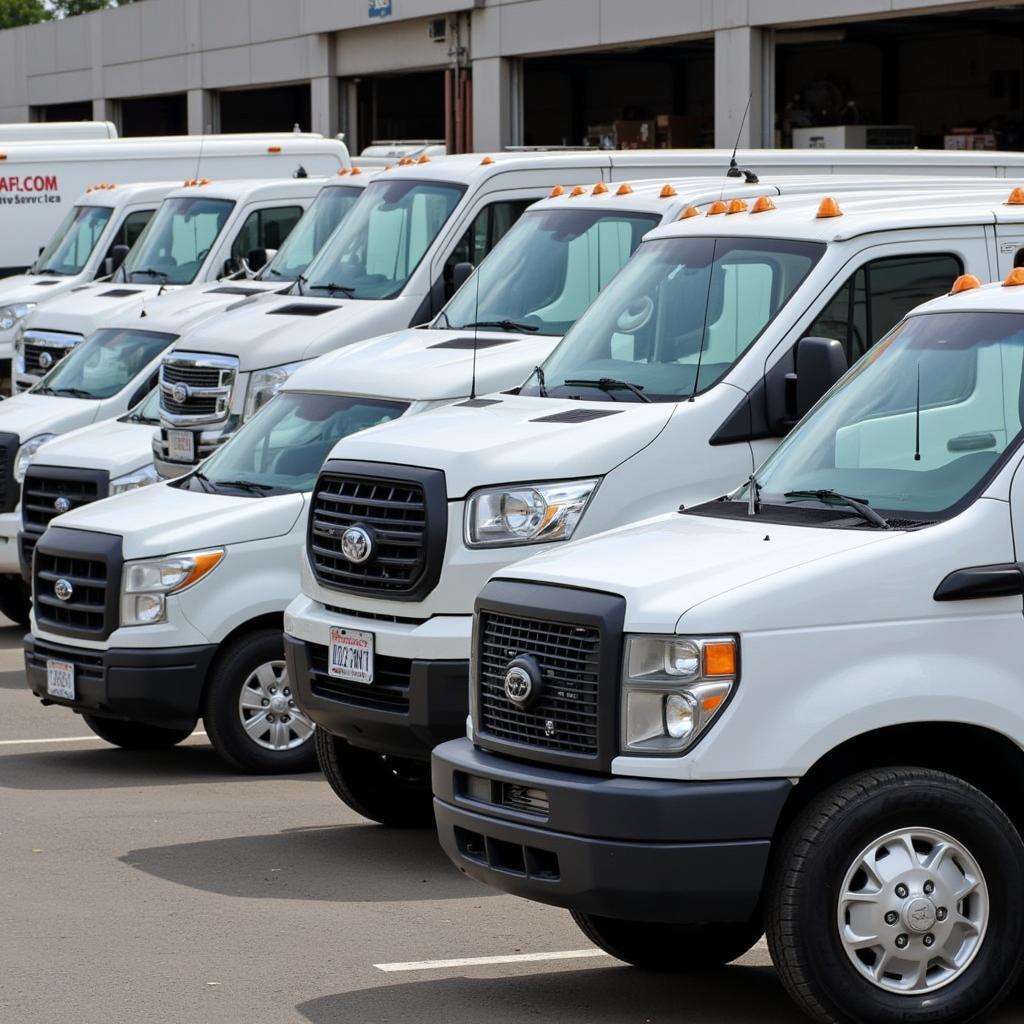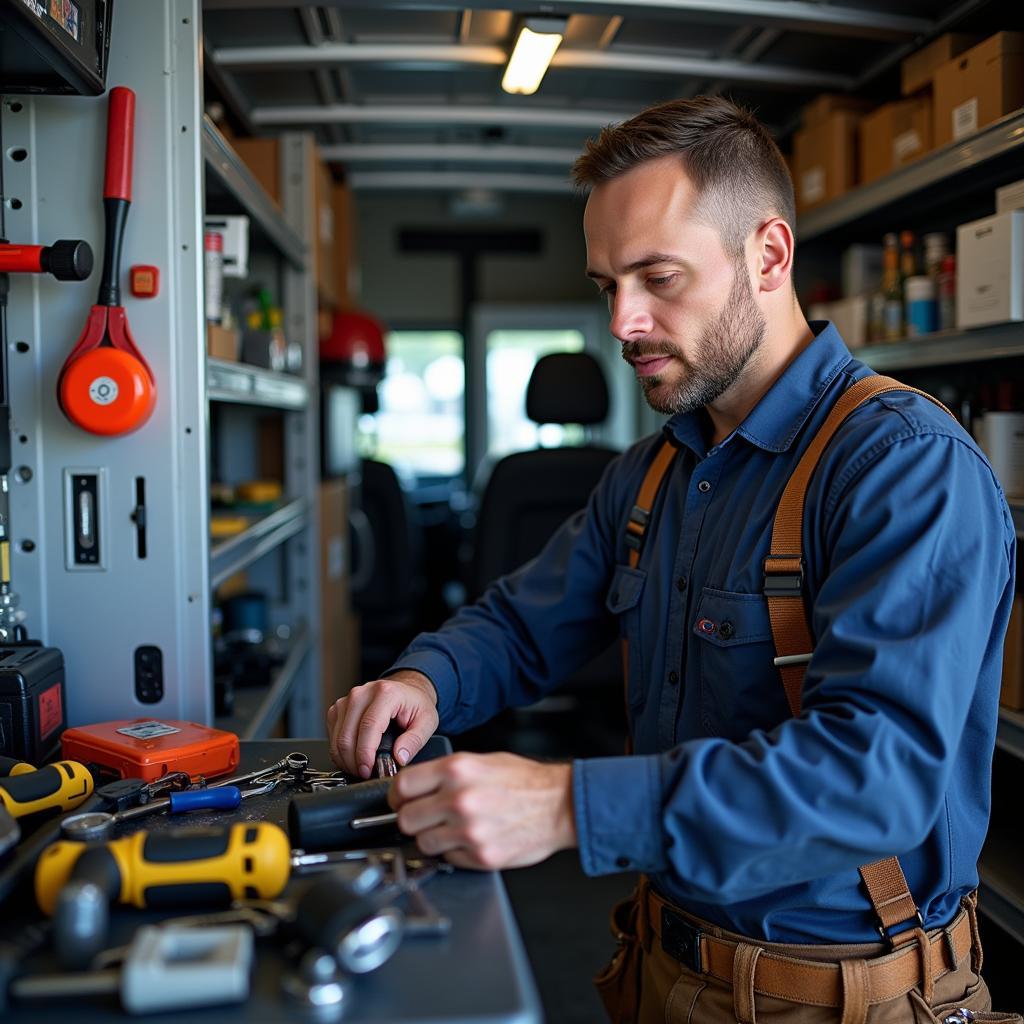What is the Best Car for Field Service Technicians?
Choosing the right vehicle is crucial for field service technicians who spend most of their workday on the road. The best car for the job needs to be reliable, spacious, fuel-efficient, and comfortable enough for long hours behind the wheel. This guide will explore the top car options for field service technicians, considering factors like cargo space, affordability, and technology features that can make your workday smoother.
Factors to Consider When Choosing a Field Service Vehicle
Before we delve into specific models, let’s consider the key factors that should guide your decision:
- Cargo Space: Ample cargo space is non-negotiable. You need enough room for tools, equipment, parts, and potentially large items depending on your industry.
- Fuel Efficiency: With so much time spent driving, fuel efficiency is essential to keep your operating costs down.
- Reliability: Breakdowns can mean missed appointments and lost revenue. A reliable vehicle with a strong track record is crucial.
- Comfort and Ergonomics: Field service technicians spend hours driving, often in traffic. A comfortable cabin with supportive seats and a user-friendly layout is essential.
- Technology Features: Navigation, Bluetooth connectivity, and smartphone integration can significantly enhance productivity and communication.
- Safety Features: Advanced safety features like lane departure warnings, blind-spot monitoring, and automatic emergency braking provide peace of mind and protect you and your cargo.
Top Car Picks for Field Service Technicians
 Field service vans parked in a row
Field service vans parked in a row
1. Ford Transit Connect
The Ford Transit Connect is a compact cargo van offering an excellent balance of cargo space, fuel efficiency, and maneuverability. It’s ideal for navigating urban areas and tight parking spaces, making it a popular choice for field service technicians in various industries.
Key Features:
- Available in cargo and passenger van configurations
- Fuel-efficient engine options
- User-friendly infotainment system with smartphone integration
What We Like:
- Versatile cargo space
- Easy to drive and park in urban environments
- Good fuel economy
What to Consider:
- Limited towing capacity compared to larger vans
2. Ram ProMaster City
The Ram ProMaster City is another strong contender in the compact van segment. It boasts impressive cargo capacity for its size and a comfortable, well-designed cabin.
Key Features:
- High roof option for increased cargo space
- Available in cargo and passenger van configurations
- Fuel-efficient four-cylinder engine
What We Like:
- Excellent cargo capacity for a compact van
- Comfortable and well-equipped cabin
- Maneuverable in tight spaces
What to Consider:
- Ride quality can be a bit firm
3. Chevrolet Silverado 1500
If you require a vehicle with more towing and hauling power, a full-size pickup truck like the Chevrolet Silverado 1500 is an excellent option. Its spacious cabin, powerful engine options, and impressive towing capacity make it suitable for carrying heavier loads and equipment.
Key Features:
- Range of powerful engine options
- High towing and payload capacities
- Comfortable and spacious interior
What We Like:
- Rugged durability and capability
- Can handle heavy loads and towing
- Comfortable for long drives
What to Consider:
- Lower fuel efficiency than smaller vans
4. Honda CR-V
For field service technicians who prioritize fuel efficiency and don’t require massive cargo space, a compact SUV like the Honda CR-V is a practical and reliable choice. The CR-V offers ample cargo room for tools and equipment, along with a comfortable and refined interior.
Key Features:
- Fuel-efficient engine options, including a hybrid model
- Spacious and comfortable interior with plenty of storage compartments
- User-friendly infotainment system
What We Like:
- Excellent fuel economy
- Comfortable and well-designed interior
- Reliable and practical
What to Consider:
- Less cargo space compared to vans or trucks
Tips for Optimizing Your Field Service Vehicle
 A field service technician organizing tools inside his van
A field service technician organizing tools inside his van
- Invest in Organizational Solutions: Shelving units, toolboxes, and dividers can maximize cargo space and keep your equipment organized.
- Prioritize Comfort: Consider lumbar support cushions, seat covers, and steering wheel covers for added comfort during long drives.
- Utilize Technology: Use navigation apps, route optimization software, and communication tools to streamline your workflow and stay connected.
- Maintain Your Vehicle: Regular maintenance is crucial for maximizing the lifespan of your vehicle and preventing costly breakdowns.
Conclusion
The best car for a field service technician depends on individual needs and preferences. Consider your cargo space requirements, budget, and desired features to narrow down your options. Whether you choose a compact van, a full-size pickup truck, or a fuel-efficient SUV, prioritizing reliability, comfort, and functionality will help you stay productive and comfortable on the road.
FAQ
1. What is the most important factor to consider when choosing a field service vehicle?
While various factors are important, cargo space is often the most crucial consideration for field service technicians. You need enough room to transport all your tools, equipment, and supplies safely and efficiently.
2. Are hybrid vehicles a good option for field service work?
Hybrid vehicles can be a great option for field service technicians who primarily work in urban areas with stop-and-go traffic. They offer excellent fuel efficiency and reduced emissions, which can save you money on fuel costs and reduce your environmental impact.
3. How can I improve the organization of my field service vehicle?
Investing in organizational solutions like shelving units, toolboxes, dividers, and cargo nets can significantly enhance the organization of your vehicle. Creating designated spaces for specific tools and equipment can save you time and frustration when searching for what you need.
4. What are some essential technology features for field service technicians?
Essential technology features include a reliable GPS navigation system, Bluetooth connectivity for hands-free calling, and smartphone integration for accessing work orders, communication apps, and route optimization software.
5. How often should I service my field service vehicle?
Following the manufacturer’s recommended maintenance schedule is crucial. However, given the demanding nature of field service work, more frequent oil changes, tire rotations, and brake inspections are advisable to ensure your vehicle remains reliable.
Need Help Choosing the Right Vehicle for Your Business?
Contact us today via WhatsApp at +1(641)206-8880 or email us at [email protected]. Our team of experts is available 24/7 to provide personalized guidance and help you find the perfect vehicle to meet your field service needs.

